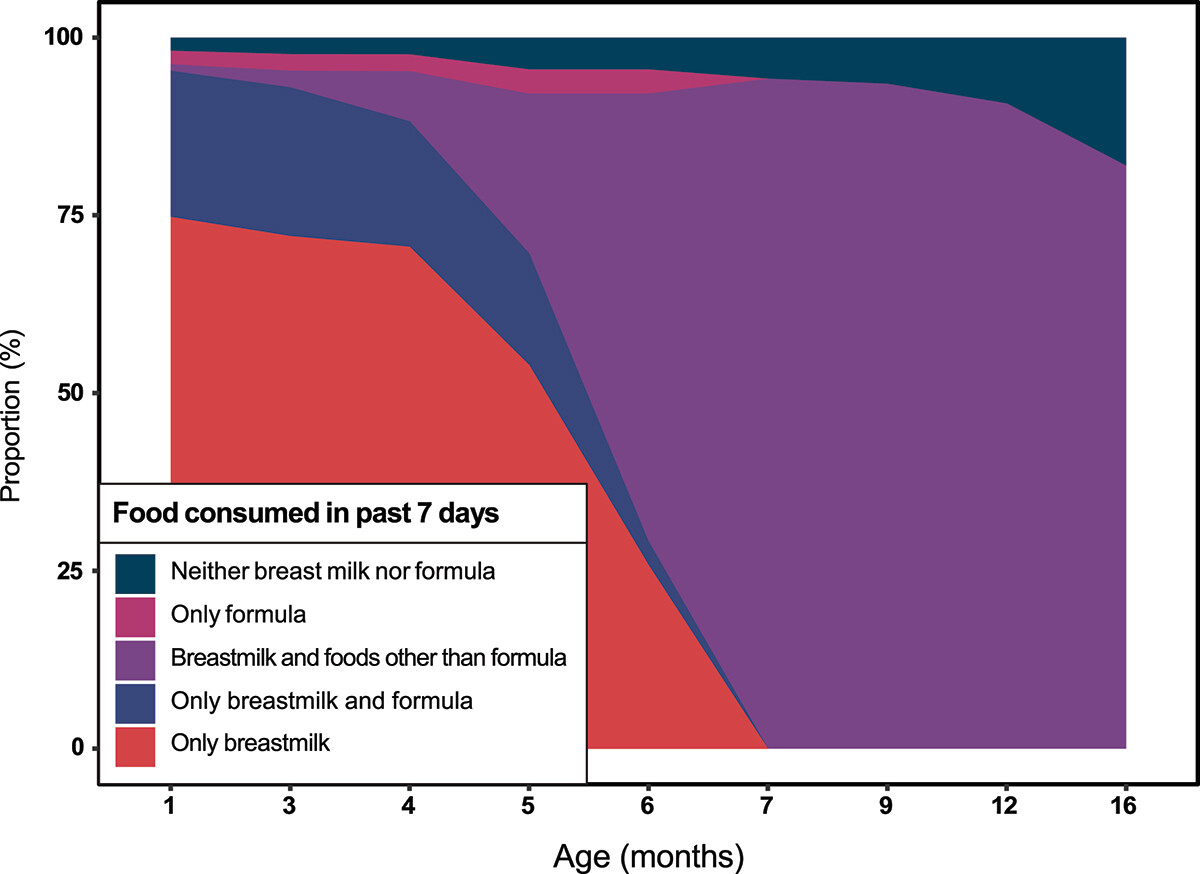Effects of breastfeeding on children’s gut colonization with multidrug-resistant Enterobacterales in peri-urban Lima, Peru
Maya L. Nadimpalli, Luismarcelo Rojas Salvatierra, Subhra Chakraborty, Jenna M. Swarthout, Lilia Z. Cabrera, Amy J. Pickering, Maritza Calderon, Mayuko Saito, Robert H. Gilman & Monica J. Pajuelo
PMID: 38300753 | PMCID: PMC10841006 | DOI: 10.1080/19490976.2024.2309681
Children living in low-resource settings are frequently gut-colonized with multidrug-resistant bacteria. We explored whether breastfeeding may protect against children’s incident gut colonization with extended-spectrum beta-lactamase-producing Escherichia coli (ESBL-Ec) and Klebsiella, Enterobacter, or Citrobacter spp. (ESBL-KEC). We screened 937 monthly stool samples collected from 112 children aged 1-16 months during a 2016-19 prospective cohort study of enteric infections in peri-urban Lima. We used 52,816 daily surveys to examine how exposures to breastfeeding in the 30 days prior to a stool sample were associated with children’s risks of incident gut-colonization, controlling for antibiotic use and other covariates. We sequenced 78 ESBL-Ec from 47 children to explore their diversity. Gut-colonization with ESBL-Ec was increasingly prevalent as children aged, approaching 75% by 16 months, while ESBL-KEC prevalence fluctuated between 18% and 36%. Through 6 months of age, exclusively providing human milk in the 30 days prior to a stool sample did not reduce children’s risk of incident gut-colonization with ESBL-Ec or ESBL-KEC. From 6 to 16 months of age, every 3 additional days of breastfeeding in the prior 30 days was associated with 6% lower risk of incident ESBL-Ec gut-colonization (95% CI: 0.90, 0.98, p= .003). No effects were observed on incident ESBL-KEC colonization. We detected highly diverse ESBL-Ec among children and few differences between children who were predominantly breastfed (mean age: 4.1 months) versus older children (10.8 months). Continued breastfeeding after 6 months conferred protection against children’s incident gut colonization with ESBL-Ec in this setting. Policies supporting continued breastfeeding should be considered in efforts to combat antibiotic resistance.
Keywords: ESBL; Peru; antibiotic resistance; breastfeeding; human milk; infant health; urban informal settlement.





